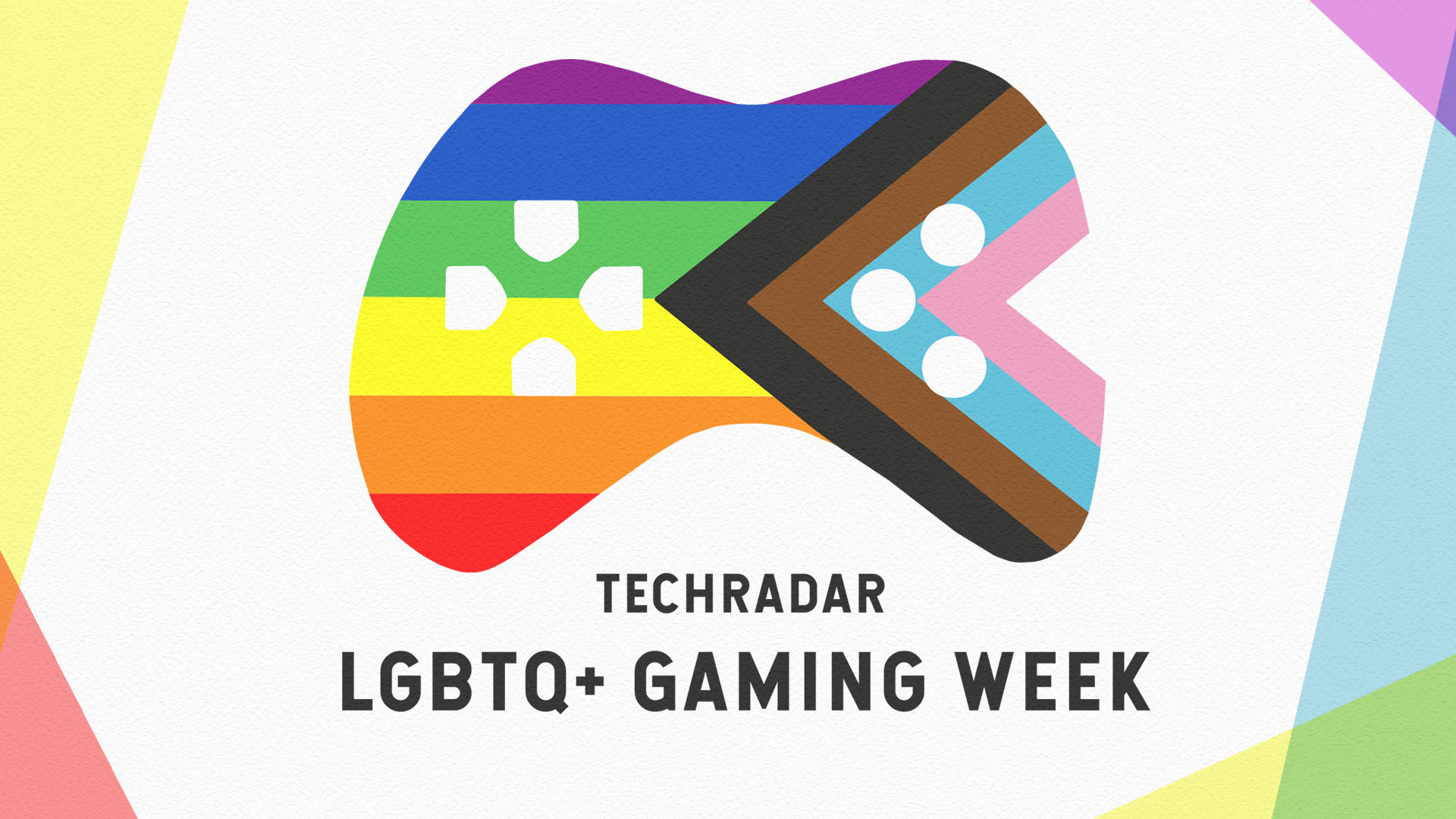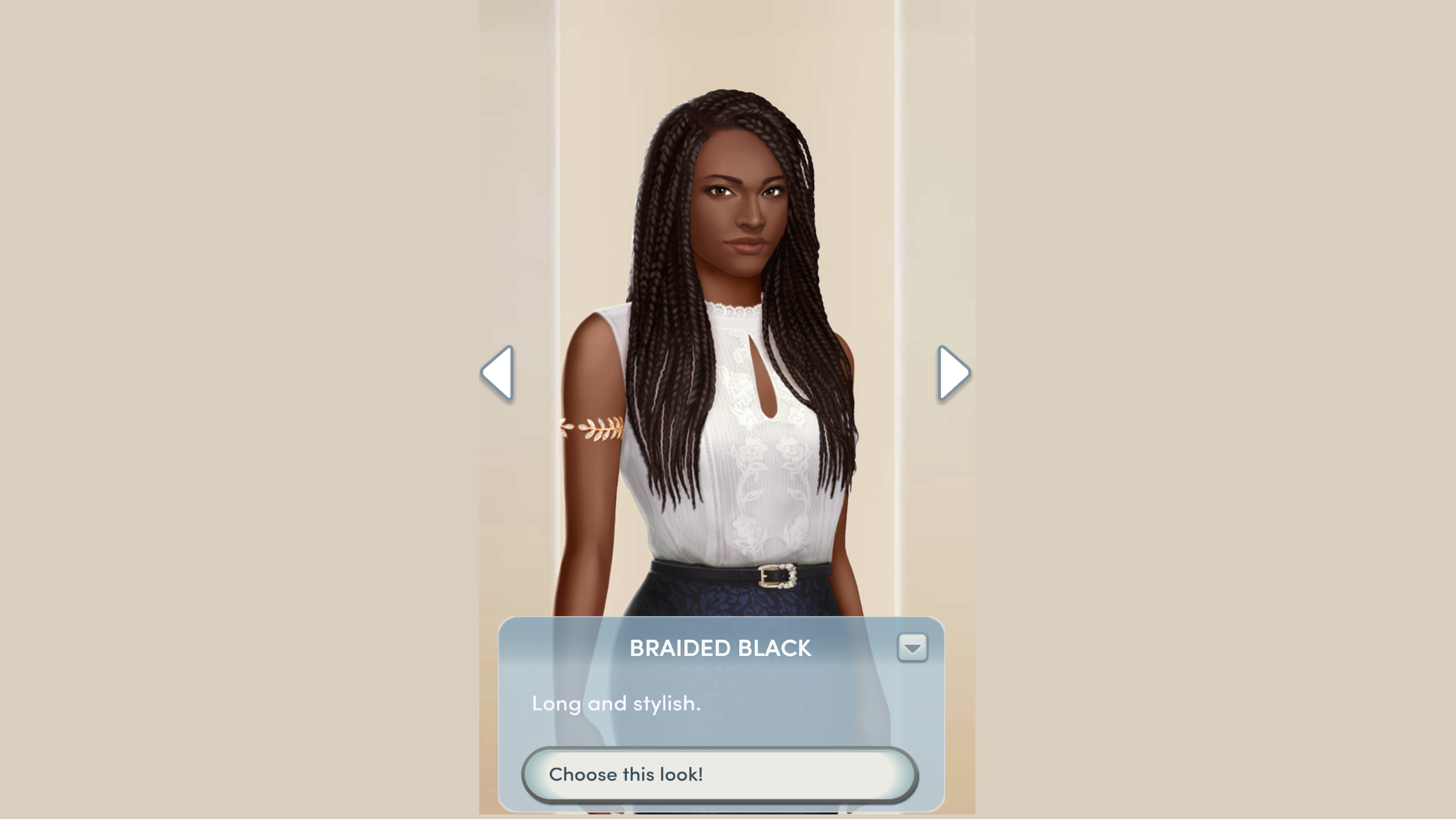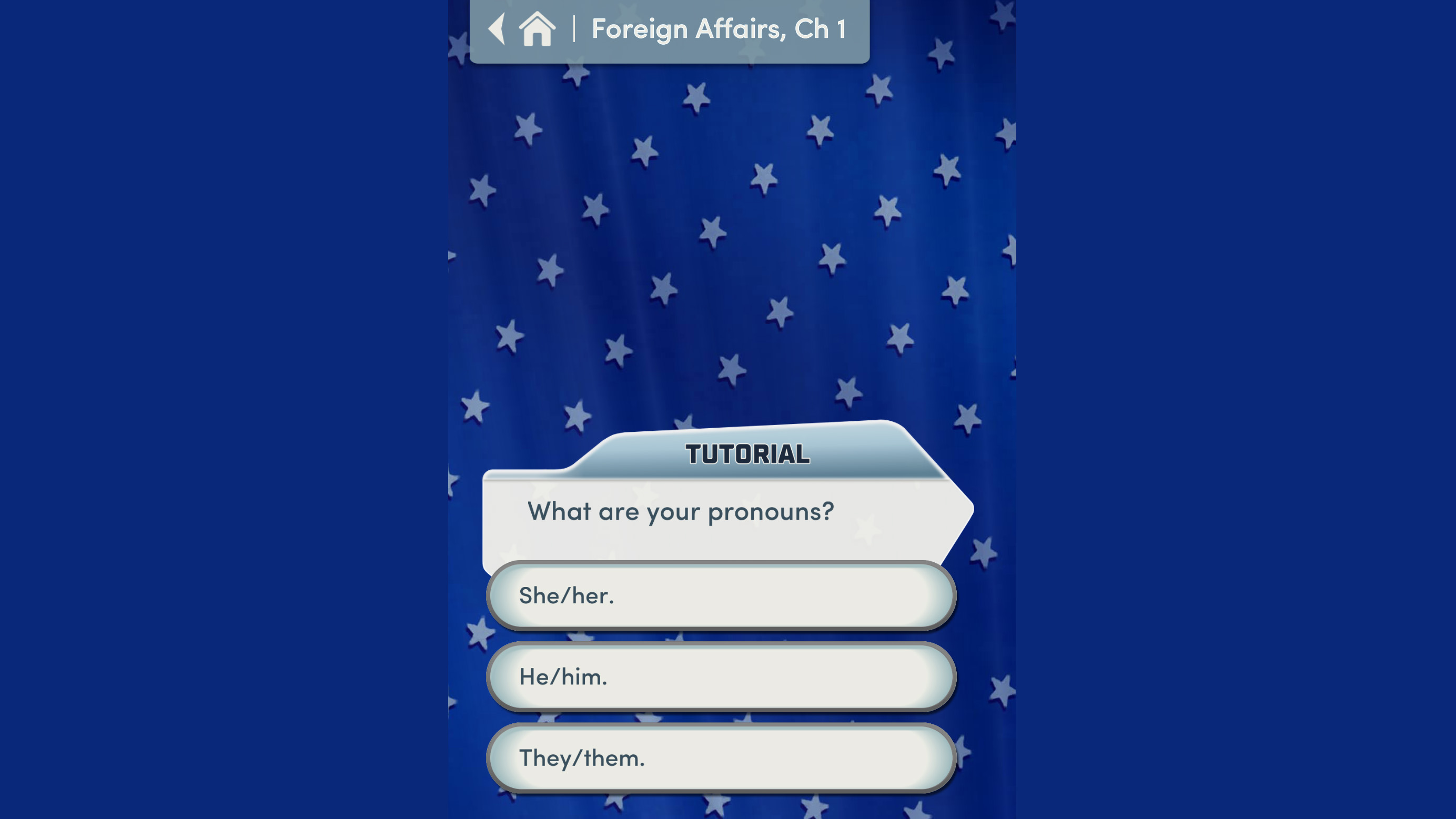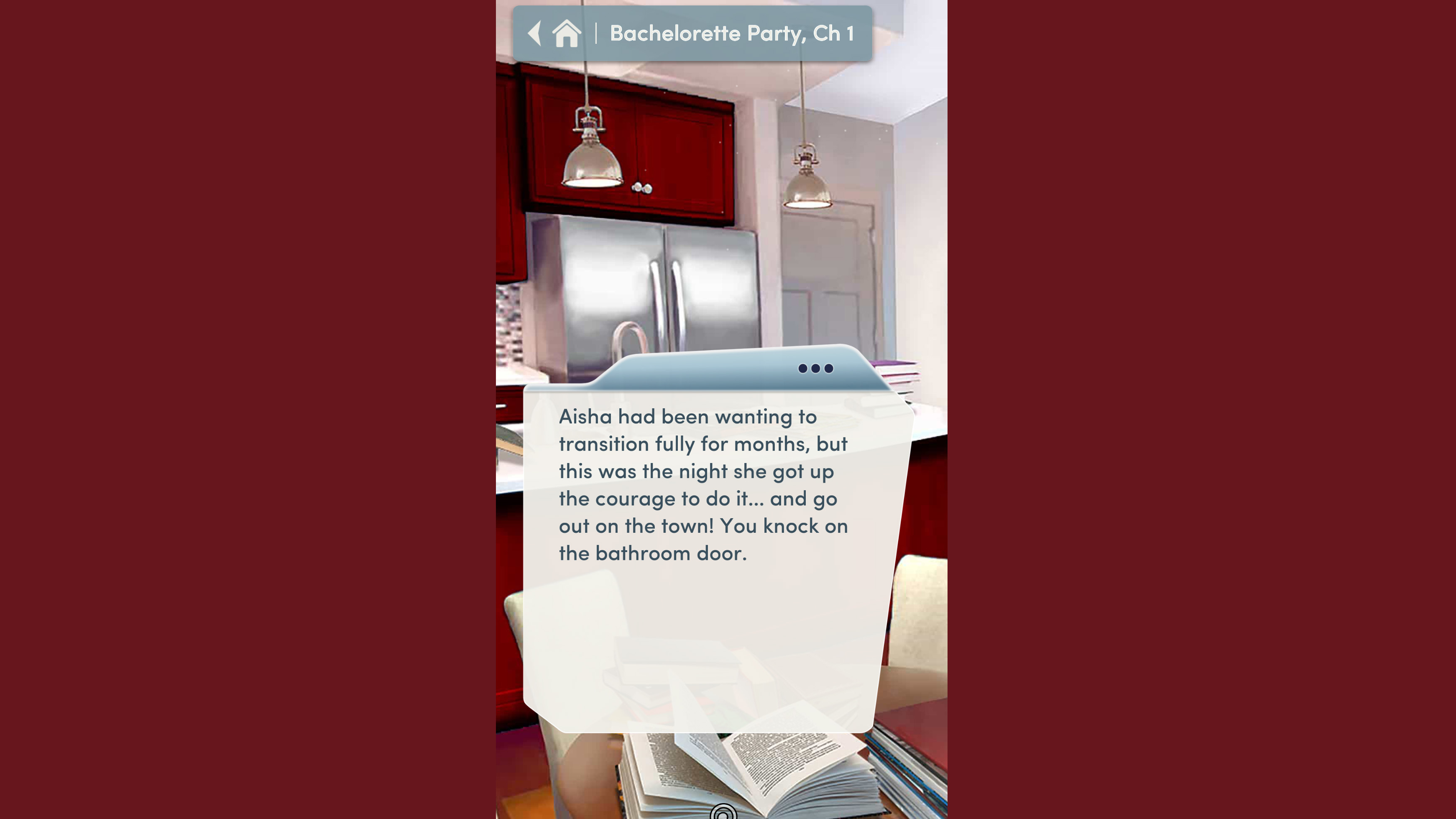LGBTQ+ Gaming Week 2021

Welcome to TechRadar's LGBTQ+ Gaming Week 2021. During this week-long celebration, we're highlighting topics and voices within the LGBTQ+ gaming community. Find out more here.
During quarantine, like many other people, I downloaded several new smartphone games to occupy my time and distract me from the chaos in the world. All were entertaining and great for killing time, but my favorite was the ‘choose-your-own-adventure’ narrative game Choices, by Pixelberry.
I’m an avid reader of various fiction genres, and Choices offers the type of storytelling I need. A player can choose books from categories such as romantic drama, adventure, sci-fi, young adult, and romantic comedy. The tales, which are broken down by chapters, keep me interested, and the interactive options are laid out in ways that are realistic within the storyline. The plots manage to be fun, and sometimes zany, while also being socially aware.
Notably, I was most impressed by the diversity of the characters. Playing Choices was the first time I saw myself, a queer Black woman, in a mobile gaming app.
Lack of representation in mobile gaming

Generally, diversity is not prioritized in gaming, and this failure is even more blatant in mobile games. Most of the time, in games where you can build your character, the default character is white, cis, and straight. Even when given an option, the darkest-skinned character is the last choice, and no matter what skin tone you choose, the features and hair are the same as the blonde, fair-skinned character. This strongly suggests that developers put little effort into what can only be described as an obligatory diversity add-on.
Additionally, it’s difficult to come across queer and trans characters in mobile gaming and, when they do exist, their inclusion in the story is often presented as scandalous or niche and not in a thoughtful manner. For example, some other narrative games present the option of having a same-gender love interest as a taboo choice to spice up the story, making it appear that any sexuality other than straight is unorthodox. Because of this, I’ve had to accept that LGBTQIA+ and BIPOC people like me are merely an afterthought in smartphone gaming, if we’re represented at all.
"When gaming, we all want to disappear into a fictional world, and queer and trans people, people of color, and people with disabilities are no exception; in fact, because of the discrimination we face in our everyday lives, it can be argued that we need this escape even more, and our participation in this diversion should not feel like an intrusion into something that wasn’t made for us."
So it was a breath of fresh air when I played Choices, and not only could I pick my character’s skin tone and hair, but the options were unique, and not identical to the white avatar’s. Also, the option to have a love interest of the same gender and not have it presented as a taboo plot twist was refreshing. I felt like I was playing my own story, not someone else’s – which should be the point of these narrative games.
When gaming, we all want to disappear into a fictional world, and queer and trans people, people of color, and people with disabilities are no exception; in fact, because of the discrimination we face in our everyday lives, it can be argued that we need this escape even more, and our participation in this diversion should not feel like an intrusion into something that wasn’t made for us.
Excluding our identities from narratives suggests that developers don’t care about welcoming us into the worlds they’ve created, and reinforces the false notion held by some that only white cis men can be gamers. We play mobile games, and we make the in-app purchases that are required to get the most enjoyment from these games.
Studies show that LGBTQIA+ people make up 21% of the UK gaming industry, and a Nielsen report showed that LGBTQIA+ gamers spend 8% more a month on games than their straight peers. In addition, research shows that 19% of Latinx people and 11% of Black people in the US identify as gamers. Finally, a 2008 study reported that more than one in five game players had a disability, with more than 10% having gaming recommended by their doctor. In my experience, many LGBTQIA+ gamers feel that even our economic contributions do not buy us relevance. This suggests to us that, in the eyes of game creators, we have little value.
Playing a gaming character in what is essentially someone else’s life story is similar to reality. There’s a widespread feeling in the LGBTQIA+ community that much of what society tells us we need to do in order to assimilate and be successful has been formulated for cis, hetero, able-bodied, neurotypical, white men, and often, these blueprints are not effective for us, because they were not made for us to begin with. Part of the reason we code-switch is to fit into socially-acceptable roles that weren’t created with us in mind. We look around and it feels like everything is carefully crafted to cater to everyone but us, just like in the gaming world.
Choices: diversity and inclusion embraced

When I discovered the smartphone game Choices, I was surprised by the diversity of the characters, and by the inclusion of storylines featuring people of queer, trans, and disabled experiences. For example, one of the amazing things about queer representation in Choices is that same-sex romantic interactions are introduced organically. There are no ‘coming out’ storylines. or shock when your character flirts with, dates, kisses, or sleeps with someone of the same gender. Queer and gender identity, including various aspects of these spectrums, are normalized in this game. Newer books even have the option of choosing the main character’s pronouns. These books make this choice separate from choosing a masculine- or feminine-presenting body type, a detail that acknowledges the difference between sex and gender.
This is most apparent in the books Passport to Romance, Platinum, America’s Most Eligible, and Bachelorette Party. In Passport to Romance, there is no main love interest who dominates the plot. Instead, there is a plethora of love interests, both men and women, so you can hook up with whoever you want. In Platinum, there are two main love interests and you can choose the gender of both. In America’s Most Eligible, both gender and race are options for a love interest, and I chose another Black woman. This was awesome because in gaming, and even on TV, it is very rare to see Black women together romantically.
"Often, queer people of color have to create enchanted worlds to house our stories because the thought of seeing ourselves in scenarios based in popular culture seems like a far-fetched idea."
In Bachelorette Party, one of the main character’s best friends is a trans woman who transitioned while the characters were in college together. She is treated with dignity, and the other characters acknowledge her identity without making it the main focus. Significantly, this character is given the same opportunity to be romanced by the main character as the others in the story.
These four books in particular truly carried me to another world, without giving me the impression that seeing myself in a character was a fantastical idea. The settings and situations in these stories were ones that I could imagine myself being in, give or take some suspension of disbelief surrounding the ins and out of being an up-and-coming pop singer or a contestant on a dating show (in Platinum and America’s Most Eligible, respectively).
Often, queer people of color have to create enchanted worlds to house our stories because the thought of seeing ourselves in scenarios based in popular culture seems like a far-fetched idea. As I sat in quarantine, unsure of what my future held and wishing I was living in another reality, playing Choices made me feel some hope that things may go back to normal again and, specifically, that people like me, with marginalized identities, would be okay too.
While there’s significant representation in other Choices books besides the three mentioned above, some do not hit the mark quite as well. In Open Heart, for example, the white cis male love interest’s plotline is somewhat domineering, and there aren’t many viable same-sex love interests. However, the racial and ethnic diversity in this book is what intrigued me.
Set in a hospital, Open Heart features two Black women doctors (one of whom is the chief of medicine), two Asian woman doctors, and two Latinx doctors – to name a few examples. There is even a Black intern that uses a wheelchair. He has a backstory and some character development, and the other residents don’t treat him any differently. This depiction of inclusion speaks volumes.
Unlike other games, Pixelberry’s thoughtful consideration of the portrayal of diversity in Choices is effective.
Visibility matters

It’s very important to implement wider representation in mobile games because, unlike console games, we all play them. Save for those whose socio-economic status or age prevents them from using a smartphone, the population of people who use mobile apps surely runs the gamut of diversity, with some 66% of smartphone users having game apps on their phones.
When it comes to showcasing a variety of experiences in gaming, we should take an even closer look at those who are rarely included in mainstream media, like the trans and disabled communities. Diversity in media functions to confront even the most apathetic people, who stay in their homogeneous bubbles, with a sense of awareness that these and other communities exist, and matter.
The more visible a community is, the more recognizable it becomes. With recognition comes relatability, and the more relatable groups of people are, the more willing members of groups who aren’t marginalized are to advocate for them. Since the gaming community is so large, it’s a great place to begin the work of creating more diversity in media.
Games like Choices are doing the work of making all people more visible. Although Choices is not the perfect picture of inclusion, I truly appreciate the fact that, as a queer Black woman, I feel seen while playing it. Companies should reflect the full range of their consumer base in their products, and appreciate that our purchases affect their profits. But that alone isn’t enough. It’s imperative that these companies understand that the experiences of the under-represented have value because we are real, and that we deserve respect, and to be seated at the table for the world to see.

Patricia Martin is an LA-based attorney and freelancer who also writes queer POC-focused fiction. She has contributed to Shine App, Go Magazine, Black Girl Nerds, AZ Magazine, and Tagg Magazine, among others. You can find Patricia at her website www.patriciamartinwrites.com and at @patriciamwrites on Twitter.
from TechRadar - All the latest technology news https://ift.tt/2M8kOaw





0 Comments